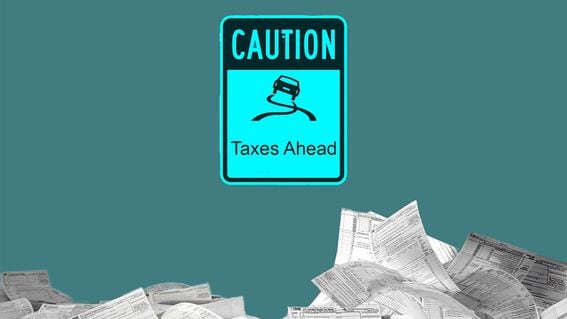
Last month, Kamala Harris endorsed a controversial 25% tax proposal on unsold assets. While Silicon Valley was up in arms about the plan, it barely registered with crypto investors who the plan would hit hard.
At its core, an unrealized capital gains tax would require individuals to pay taxes on the appreciation of their cryptocurrency holdings, even if they have not made a single sale.
Such a move could crush cryptocurrency markets.
The so-called “wealth tax” is a radical departure from traditional tax principles, which only apply to gains realized when an asset is sold. The plan would have devastating consequences for crypto investors and the broader economy, undermining the inherent value of cryptocurrencies as a store-of-value that operates outside the clutches of any singular government.
Harris and supporters of the proposal, first introduced in President Biden’s last budget proposal, defend the tax as a levy on Americans worth more than $100 million. The wealth tax would “address substantial inequities in our tax system,” one White House official responding to the furor told Axios.
However, the plan would hurt all investors by encouraging a sell-off by larger investors to fund their tax payments. This sell-off would drive down the price of cryptocurrencies and impact returns for everyday investors, including those who have invested small amounts in hopes of improving their economic situation.
Prolific bitcoin investors such as Tim Draper, Michael Saylor, and Tyler and Cameron Winklevoss would be slapped with tax bills of up to $1 billion. Yes, that’s a billion, not a million.
Their crime? Recognizing the value of bitcoin before most investors and purchasing the asset early. The Winklevoss twins, who bought their bitcoin in 2013 when it was trading at $10, would be forced to pay $1 billion to the Internal Revenue Service.
Draper, who invested in 2014 at a cost-basis of approximately $632 per coin, would see a $423 million tax bill according to Meanwhile’s analysis. Saylor, who personally holds 17,732 BTC, would be required to pay the IRS $212 million.
Due to bitcoin’s significant performance over the last decade, the tax liabilities would be enormous. The price of bitcoin is up 700% over the last five years and up 17,000% over the last decade.
Anyone with a basic understanding of the value of cryptocurrencies can see how this proposed tax would discourage long-term investment and encourage short-term trading. Long-term holders would be punished for their belief in bitcoin’s future potential and forced to pay hefty taxes on assets they have not yet sold.
Moreover, the move would stifle innovation and financial prosperity across the board. Wealthy Americans, who own trillions of dollars worth of stock, would have to sell large parts of their holdings to also meet their tax obligations, while startup founders, who are compensated mostly in equity, would be discouraged from taking their businesses public.
Marc Andreessen, founder of the notable venture capital firm, remarked in a July podcast episode that startup companies would be “completely implausible” if this tax were enacted, while entrepreneur Mark Cuban stated to Fox Business that the proposal would “kill the stock market.”
The crypto industry is already facing challenges from a SEC that seems determined to rule through enforcement rather than offering clear guidelines. Most companies want to comply, but innovation is stifled under the fear of regulatory action.
The IRS and SEC are frequently forced to enforce unclear laws that do not align with new technologies. However, in this case, the impact is unmistakable: suppressing innovation and harming the average investor, while appearing to only target the ultra-wealthy.
This proposal for an unrealized capital gains tax represents a flawed and perilous policy that could have unforeseen negative effects for all crypto investors, not just those exceeding $100 million in net worth.
Instead of hindering innovation and discouraging investment, the government should prioritize creating a favorable regulatory environment that encourages the growth of the crypto sector. This way, we can maximize the potential of cryptocurrencies to generate economic growth and enhance the lives of people globally.
If the Biden-Harris administration aims to raise significant funds for a social safety net, it might be wise to consider investing some of their own money in bitcoin and setting up a national reserves strategy, rather than pursuing those who recognized the potential of holding long-term.



